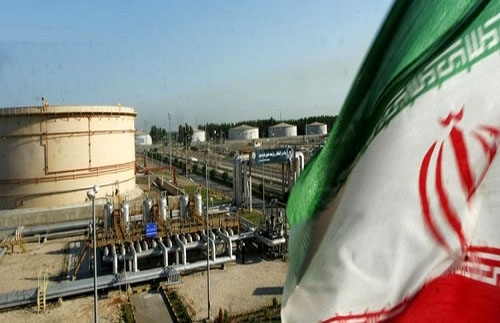by WorldTribune Staff, July 1, 2020
The combination of crippling U.S. sanctions and the devastating coronavirus outbreak have caused Iran’s economy to crash, reports say.
U.S. sanctions on the Islamic Republic’s energy industry have taken the heaviest toll. Iran currently sells less than 200,000 barrels of crude oil per day, and possibly less than 100,000. In 2017, that number was 4 million per day.

At least 40 percent of Iran’s budget is based on the country’s crude oil sales, and an additional and significant portion of its profits are dependent on oil.
The International Monetary Fund (IMF) estimates that Iran’s profits for this year will be $2 billion, which is 30 times less than during the period before the U.S. sanctions were implemented.
Israel Hayom quoted Iranian Finance Minister Farhad Dejpasand, who admitted that “we don’t have any profits from crude oil.” Even if the sanctions are removed, he said, the country “will not be able to cover its losses. We need to find new sources of income.”
Iran’s main oil customers were China and India, both of which have turned to Russia, Saudi Arabia, and the U.S. for their oil needs.
According to Dejpasand, Iran’s economy is expected to shrink by 15 percent this year, losing close to $70 billion.
Iran’s currency, the rial, dropped after its central bank reported 41.3 percent inflation. Iran currently has 10 million people unemployed, for a nearly 20 percent unemployment rate.
Iran on Monday recorded its highest number of reported deaths from COVID-19 within a 24-hour period, official health ministry figures showed.
The Islamic Republic has reported a total of 10,670 deaths and 225,205 infections from the coronavirus, health ministry spokeswoman Sima Sadat Lari said in a statement on state TV.
Voice of America reported in March that Iranian authorities had moved swiftly and aggressively to contain independent reporting on the coronavirus.
Meanwhile, the United States said on Sunday that an expiring United Nations weapons embargo on Iran must remain in place to prevent it from “becoming the arms dealer of choice for rogue regimes and terrorist organizations around the world.”
U.S. special envoy Brian Hook told The Associated Press that the world should ignore Iran’s threats to retaliate if the arms embargo, set to expire in October, is extended, calling it a “mafia tactic.”
The UN arms embargo so far reportedly has stopped Iran from purchasing fighter jets, tanks, warships and other weaponry, but has failed to halt its smuggling of weapons into war zones.
Hook argued both an import and export ban on Teheran must remain in place to secure the wider Middle East.
“If we let it expire, you can be certain that what Iran has been doing in the dark, it will do in broad daylight and then some,” Hook said.
A ban on selling conventional weapons to Iran ends in October under a 2015 Security Council resolution that blessed the nuclear deal between Iran and world powers and from which U.S. President Donald Trump withdrew in 2018.
The U.S. has put forward a resolution in the United Nations to extend the embargo but faces opposition from veto-wielding Russia and China, which stand to win contracts with Iran.
Since Trump’s withdrawal from the nuclear deal, Iran has broken all of the accord’s production limits, officials say. The UN’s International Atomic Energy Agency (IAEA), which monitors Iranian nuclear activity as part of the deal, says Teheran’s stockpile of low-enriched uranium continues to grow.
Iran has threatened to expel IAEA inspectors and withdraw from the Nuclear Nonproliferation Treaty amid the U.S. pressure campaign.
“If we play by Iran’s rules, Iran wins,” Hook said. “It is a mafia tactic where people are intimidated into accepting a certain kind of behavior for fear of something far worse.”
Hook maintained that the UN ban on Iran exporting weapons abroad also needed to remain in place, even though it has not prevented Teheran from smuggling arms. Iranian arms in particular have turned up in Yemen, where Iran-backed Houthi terrorists fight a Saudi-led coalition.
“I don’t think anyone believes that Iran’s behavior merits loosening restrictions on their ability to move weapons,” Hook said.
U.S. Secretary of State Mike Pompeo on Tuesday urged the UN Security Council to extend the arms embargo on Iran, warning that its expiration would risk the stability of the region.
“Iran will hold a sword of Damocles over the economic stability of the Middle East, endangering nations like Russia and China that rely on stable energy prices,” Pompeo told the virtual session, according to AFP.
Tuesday’s session heard a UN report that found that cruise missiles and drones from an attack last year in Saudi Arabia were of Iranian origin.
“Iran is already violating the arms embargo even before its expiration date. Imagine if Iranian activity were sanctioned — authorized — by this group if the restrictions are lifted,” Pompeo said.
Intelligence Brief __________ Replace The Media
